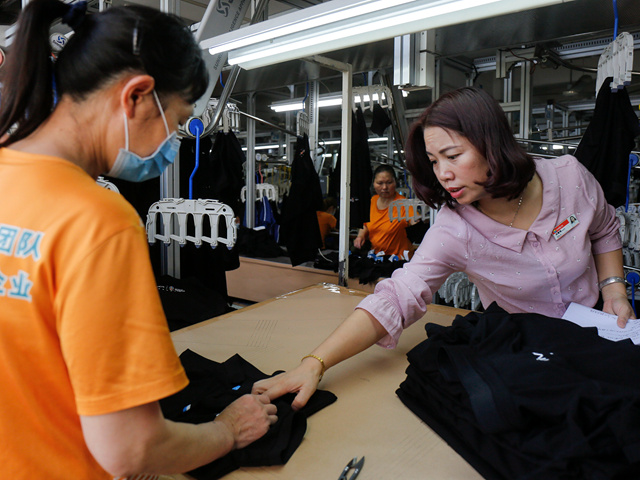'Plum Blossom in Snow' helps migrant workers bloom


Mi Xuemei, a deputy to the National People's Congress, China's top legislature, has devoted herself to helping migrant workers better integrate into urban life.
Born in Lixian county in Northwest China's Gansu province, Mi has been working in South China's Guangdong province for 22 years. She has worked in different jobs in the garment manufacturing business. Starting as a security guard, she has worked her way up to the management level at a garment company in Zhongshan city.
Last year, she was elected as a deputy to the 13th National People's Congress. She has spent a lot of time on learning the problems facing migrant workers. "To speak for them is my responsibility," she said.
Being a migrant worker herself, Mi knows what concerns this group the most.
"Most of the employees in our company are migrant workers. A pressing problem they encounter is the education of their children," said Mi.
She has made extensive survey on the education problem of migrant children in Zhongshan and made suggestions to related government departments on how to solve the problem.
Zhongshan has taken measures to lower the threshold for migrant children to get access to public education, including a points-based application system for hukou, or permanent residence permit.
In 2018, more than 20,000 children of migrant workers in the city were enrolled in public schools. And in the 2018-2019 school year, children of migrant workers make up 58.5 percent of the total students receiving compulsory education in the city, more than children with permanent residence permit.
Chai Dandan, a colleague of Mi, is one of the beneficiaries of the new policy. Her daughter reached school age last year, but due to an ignorance of the new hukou policy, she wanted to give up her job in the city and take her child back to the hometown in Henan province.
When Mi found out about her plan, she explained to her the hukou policy and successfully helped her daughter get enrolled at a public school.
"Migrant workers make a city their home only when the city makes them feel warm," said Mi.
In March 2018, Mi got the chance to meet President Xi Jinping and voiced her opinions in a panel discussion attended by Xi and lawmakers from Guangdong province during the annual meeting of the National People's Congress.
Mi said migrant children should be provided with equal access to public education as urban children so they can study and grow up at the side of their parents.
Xi told Mi in response: "As we push for urbanization, we spare no efforts in helping migrant workers settle down in cities and help their children live in cities with them, thus solving the problem of left-behind children."
Xi also praised Mi, saying her self-made experiences echoed her name, which is just like "the fragrance of plum blossom coming from bitter cold" ("Xuemei" means "plum flower in the snow" in Chinese).
- Creative fireworks show held in China's 'fireworks capital'
- Chinese scientists achieve net-negative greenhouse gas emissions via electrified catalysis
- At the gateway to China's resistance, memories of war echo 88 years on
- Mainland scholar outlines 10 fallacies in Lai's separatist narrative
- China's first ocean-level smart scientific research vessel delivered in Shanghai
- World's first somatic cell-cloned dzo born in Xizang





































